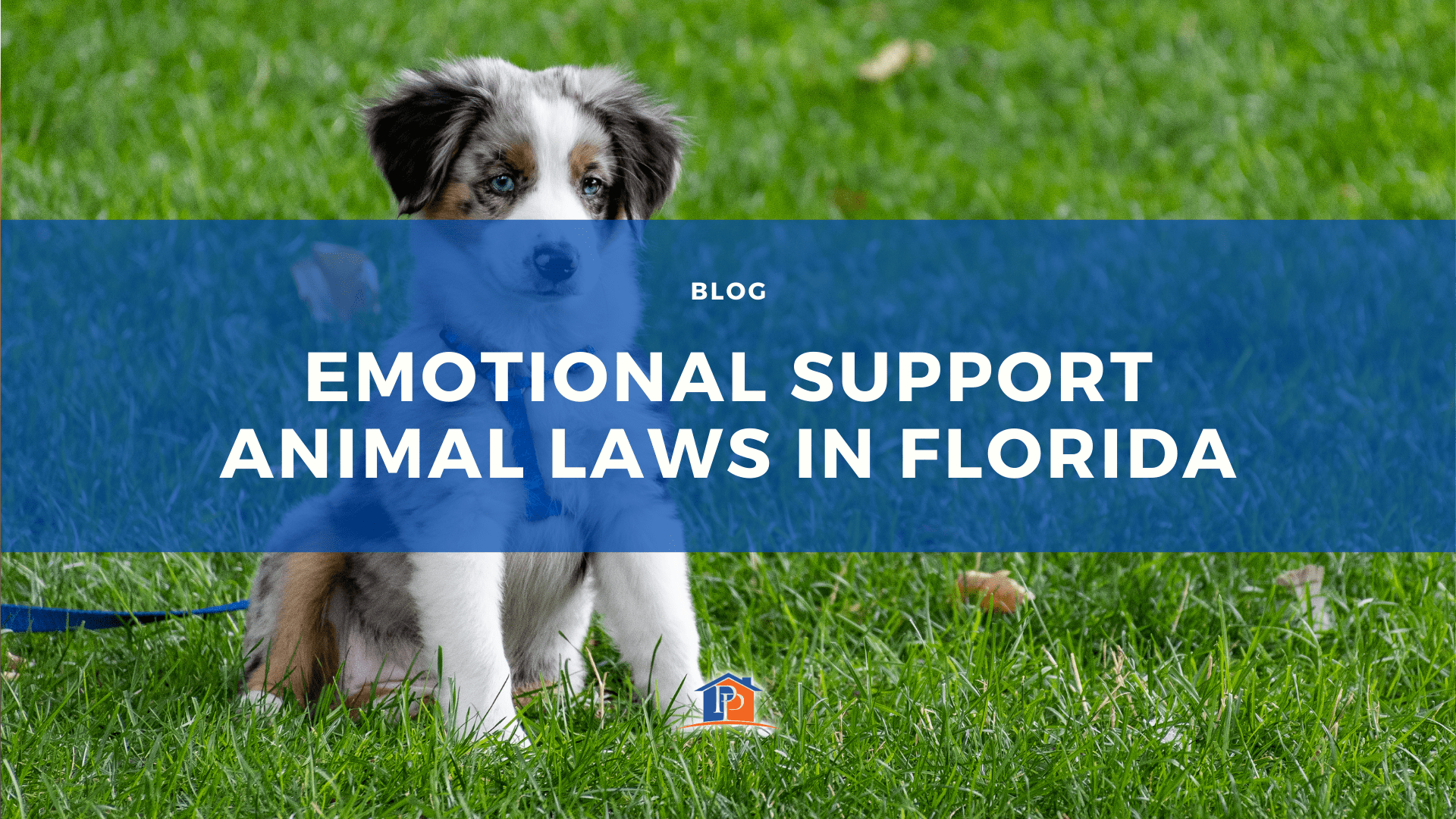An emotional support animal is not considered a pet, they are considered a type of assistance animal for a person with a disability under the federal Fair Housing Act.
Emotional support animals (ESAs), have been known to assist disabled individuals with severe depression, generalized anxiety disorder, post-traumatic stress disorder and many other emotional and psychiatric disabilities. There are many states that have their own set of rules regarding ESAs, including Florida, that also protect emotional support animal owners in housing.
When a person with a disability needs an ESA, he or she must first make the request to his or her housing provider or housing board and submit a documentation or letter from a doctor or therapist who can establish the disability and need for the assistance animal.
UNDERSTANDING THE DIFFERENCES BETWEEN AN EMOTIONAL SUPPORT ANIMAL AND A SERVICE ANIMAL.
Emotional support animals provide therapeutic benefits to their owner through affection and companionship. A service animal (usually a dog) is specially trained to perform a task to help someone with a disability. Unlike a service dog, an emotional support animal does not need specialized training to handle a task, they come in different breeds, animal types and are not just limited to dogs. There is no size limit for service nor emotional support dogs.
Service dogs have access to all public areas, formal registration is needed for a dog to officially be a service dog and they need to wear a vest or a tag to be identified. On the other hand, it is not a requirement for ESAs to be trained, they are not required to wear any tags or clothes to identify them, but they do not have access to all public areas.
It is illegal to misrepresent your emotional support dog as a service animal, so it is important to understand the difference.
IS IT AN EMOTIONAL SUPPORT ANIMAL OR A PET?
While it might be easy to slip a fake vest on your dog and tell everyone it is an emotional support animal or service dog, that is considered a crime. The Florida legislature passed law SB-1084, the amendments to Chapter 760 of the Florida Statutes became effective on July 1st, 2020 and it criminalizes fraudulent requests. Offenders can face fines, possible court-ordered community service or even jail time in more severe cases.
The question is, when do you know if pet owners are only obtaining letters from therapists to avoid paying fees or to get permission to take them to places where they would not normally be allowed? It is very difficult to distinguish a legitimate need from a fraud.
The number of people claiming they have the right to live with animals for their mental health as well as to take them into restaurants and stores has been a growing problem in recent years.
Due to this, on January 11th 2021, the US Department of Transportation (DOT) announced that ESAs are no longer a protected class of animal on domestic airlines. Each airline is now free to determine whether they will allow ESAs or not, which caused most airlines to stop accepting ESAs free of charge.
WHAT LANDLORDS SHOULD KNOW
Landlords should understand the statute to comply with the rights of tenants and homeowners under fair housing and disability laws. If a tenant with a disability requests to live with an assistance animal at your property, previously supported by a valid ESA letter, you or your property management company should provide reasonable accommodation for them even if the building normally prohibits pets. ESAs are also exempt from landlord pet fees.
Following the law will avoid costly penalties for legal violations. In situations where a landlord is uncooperative, tenants have the right to file a complaint directly with the U.S. Department of Housing and Urban Development (HUD).
A housing provider may deny a request for reasonable accommodation if the animal poses a threat to the safety or health of others or poses a direct threat of physical damage to the property. Please note that an aggressive breed alone would not be sufficient to deny a request.
Landlords should not request information that details the diagnosis or severity of the tenant’s disability or medical records since tenants have certain rights to privacy when it comes to sensitive information like this.
A wide range of health care practitioners are permitted to provide ESA letters in Florida, including psychologists, mental health counselors, marriage and family therapists, social workers, psychiatrists, doctors, registered nurses among other licensed professionals.

 Login
Login

